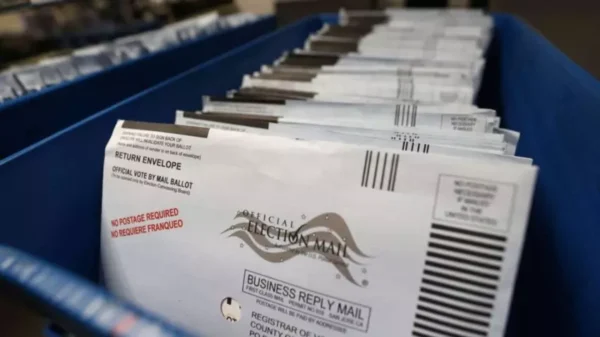Diverse Coalition Urges Congress to Pass the Democracy Restoration Act
Bill Would Restore Voting Rights to 4.4 Million Americans
March 18, 2015
FOR IMMEDIATE RELEASE
CONTACT: 212-549-2666, media@aclu.org
WASHINGTON – U.S. Sen. Ben Cardin (D-Md.) and U.S. Rep. John Conyers (D-Mich.) today introduced the Democracy Restoration Act, which would restore voting rights in federal elections to nearly 4.4 million American citizens with past criminal convictions upon release from incarceration.
The Democracy Restoration Act has garnered broad support from a diverse coalition that includes law enforcement associations, the faith community, racial justice advocates, and civil rights organizations. Versions of the bill were introduced in past sessions of Congress.
"Millions of American citizens are without a political voice in federal elections because the current patchwork of laws that disfranchise people with criminal records has created an inconsistent and unfair electoral process,” said Deborah J. Vagins, ACLU senior legislative counsel. “Many criminal disfranchisement laws proliferated during the Jim Crow era with the intent of keeping African Americans from voting and the effects of this are still being felt today. The Democracy Restoration Act will ensure that returning citizens are fully able to participate in our democracy. We urge Congress to swiftly pass this bill."
“Restoring voting rights to citizens who have served their time will strengthen our democracy,” said Nicole Austin-Hillery, director and counsel of the Brennan Center’s Washington, D.C., office. “At a time when our country is considering the legacy of Selma, and the equality at the ballot box it helped bring, preventing people from voting is just not acceptable. Government at every level should act to restore voting rights and ensure our voting system is free, fair, and accessible to all eligible Americans.”
Rights restoration continues to gain bipartisan support. Last month, U.S. Sen. Rand Paul (R-Ky.) introduced a more limited bill that would restore voting rights for those who have committed non-violent offenses. Momentum is also building in the states, with bills moving in Maryland, Minnesota, and Kentucky — some with bipartisan support. Currently, 35 states disfranchise people after they are released from prison.
View the ACLU’s factsheet on the Democracy Restoration Act and map of criminal disfranchisement laws nationwide.
View the Brennan Center’s proposal to restore voting rights upon release from incarceration and state-by-state guide on criminal disenfranchisement laws.
Stay informed
Sign up to be the first to hear about how to take action.
By completing this form, I agree to receive occasional emails per the terms of the ACLU's privacy statement.
By completing this form, I agree to receive occasional emails per the terms of the ACLU's privacy statement.

